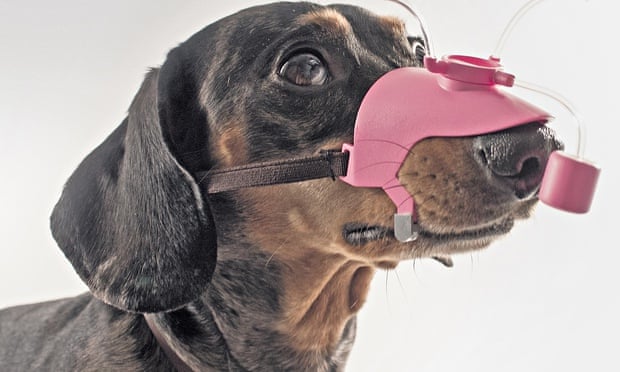
You stand at the ATM but, instead of producing your card and PIN, you unbutton your trousers while a dachshund, trapped in the machine, sniffs around your intimate regions, identifying you by your unique scent. This is the future dreamed up by artist and designer Soomi Park, as part of her project The Republic of Privacy, currently exhibiting at the Biennale Internationale Design in France.
Park created the project while studying at the Royal College of Art in 2013, after becoming intrigued by the mass-collection of personal data by governments and corporations. “I was naive before the project started”, she says “but as I wrote my dissertation I became more concerned about privacy invasion. When Tim Cook says, ‘We want to change the way you live your life,’ that kind of speech scares me!” In response to these concerns, she invented the titular republic: an imagined utopia where citizens are guaranteed total privacy. The exhibition comprises artefacts and photographs documenting life in this fantasy world, including an eccentric wedding ritual and, not least, the dog-equipped cash machine. The specific idea of using dogs in institutional data-collection came from Park’s research into the history of state espionage. The Stasi, she explains, harvested scent-data by collecting strips of fabric from the interrogation-room chairs in which suspected dissidents had sat, to be used later to assist sniffer dogs in their searches. “I found that fascinating” says Park. “If dogs are well-trained, they can immediately recognise a scent.” The dog, pictured wearing the artist’s idea of scent-enhancing nose-gear, solves the problem of the bank having to keep personal information on record. “It’s private, because a dog can’t talk,” she says.
But the solution is flawed, of course, since the act of being examined by the dog is itself an invasion of privacy. “It’s a paradox”, Park says, “It’s not supposed to make sense at the first glance, but I want to believe that it could provoke a debate.”